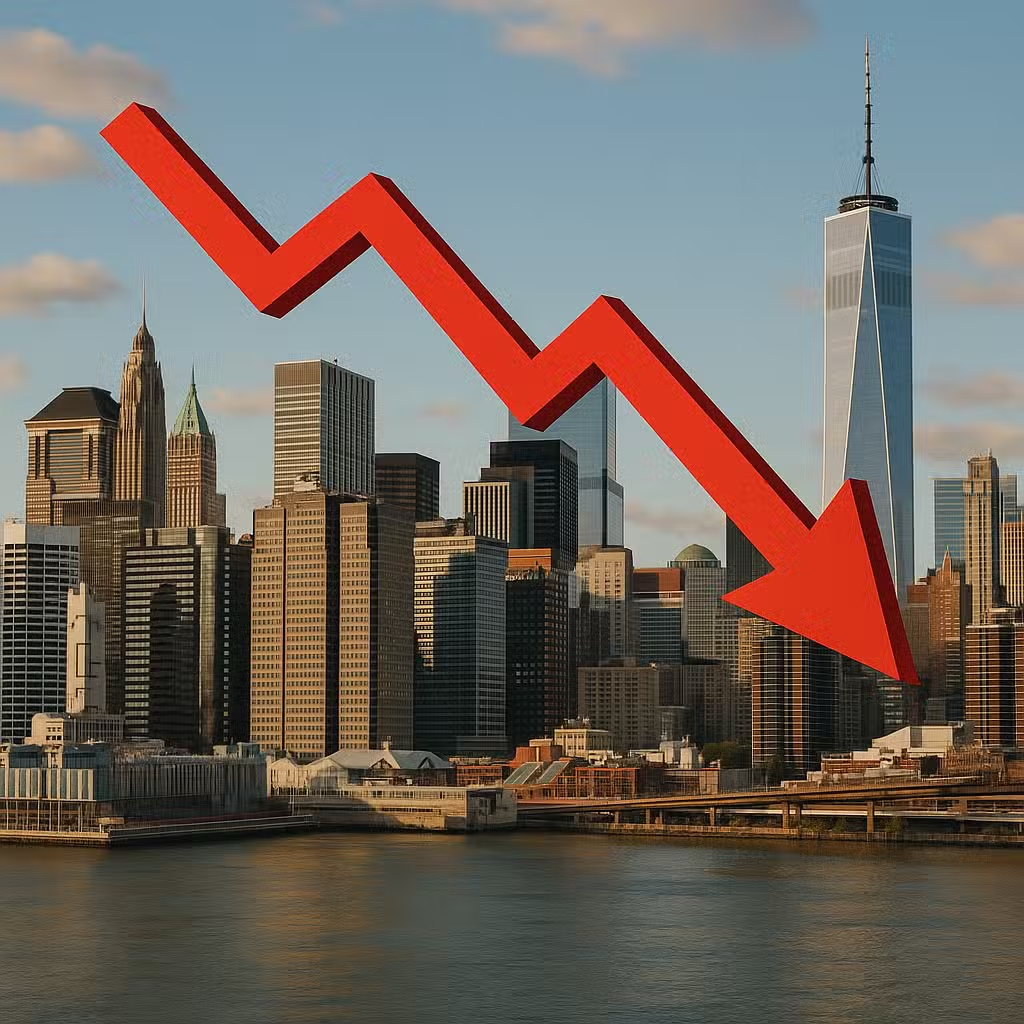Rising Losses in Manhattan Condo Sales Signal Shifting Real Estate Risks for Investors
Imagine buying a rare baseball card, only to find out years later it’s worth the same—or even less—than when you bought it. That’s what’s happened to many people who bought condos in Manhattan over the past decade. Let’s break down why this matters for investors, what’s going on, and what you can do about it.
What’s Happening With Manhattan Condos?
Even though Manhattan is famous for its expensive real estate, about a third of condos sold in the past year went for less than what the owner paid. That means lots of people lost money. While some luxury condos did well, most regular condos didn’t make much—or any—profit.
According to Brown Harris Stevens, the median price per square foot for Manhattan condos hasn’t really changed in the last ten years. So, if you bought a condo back then, you might have just broken even or lost money after costs.
This is surprising because, across the U.S., home prices have soared. Only about 2% of home sellers nationwide are at risk of selling for a loss if they bought before the pandemic, according to Redfin.
Bull Case: Reasons for Optimism
- Luxury condos are different: If you bought a condo for $10 million or more, you likely made a solid profit. High-end buyers, often paying in cash, aren’t as affected by higher interest rates or economic swings.
- Buying during downturns can pay off: People who bought during the 2020-2021 pandemic dip may see gains when they sell.
- Manhattan is still special: It remains one of the priciest places to buy real estate in the U.S., and many see it as a “blue chip” investment, like a top-rated stock.
- Market stability: According to Jared Antin, “the losses were negligible” for most, and the market is still steady.
Bear Case: Reasons for Caution
- Flat prices for a decade: Most condo sellers are breaking even or losing money, especially after counting inflation, transaction fees, and renovations.
- Biggest losses for recent buyers: Half of those who bought between 2016 and 2020 lost money when selling recently.
- Costs add up: Manhattan’s transaction costs can be 6%–10% of the sale price. Renovations, maintenance, and taxes make profits even harder.
- Inflation bites: Inflation has gone up 36% over the past ten years (Bureau of Labor Statistics). If you bought in 2015 and sold for the same price in 2025, you lost money in real terms.
- National comparison: The Case-Shiller national home price index rose 89% from 2015 to 2025—much more than in Manhattan and way above inflation (Federal Reserve).
- Policy and tax changes: Caps on state and local tax deductions, new rent laws, and more have hurt demand and prices.
- More millionaires are renting: The number of New Yorkers making over $1 million and choosing to rent more than doubled from 2019 to 2023, showing some prefer to sit out of buying right now (RentCafe).
Why Does This Matter for Investors?
If you’re looking for steady growth, Manhattan condos haven’t delivered over the past decade. While luxury units and well-timed buys can still pay off, most investors haven’t seen big returns. This is a sharp contrast to the rest of the country, where real estate has been a strong investment.
Changes in tax laws, high transaction costs, and inflation have made profits harder to come by. It’s also a reminder that “safe” investments, like Manhattan real estate, can go through long periods of flat or negative returns.
Investor Takeaway
- Don’t assume all real estate is a sure thing: Even prime locations can have flat or negative returns for years.
- Consider all costs: Factor in transaction fees, renovations, maintenance, and inflation before counting on profits.
- Timing matters: Buying during downturns or at the right time can make a big difference, but trying to time the market is tricky.
- Luxury and cash buyers still rule: High-end properties and cash deals are less affected by market swings and interest rates.
- Diversify: Don’t put all your eggs in one basket—spread your investments across different markets and asset types for more stability.
For the full original report, see CNBC







